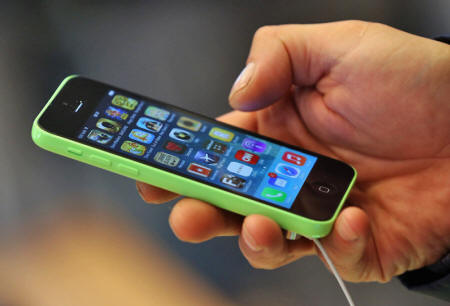|
from
OccupyCorporatism Website
Recently, adding to the drama concerning maintaining privacy while using smart-phones, James Comey, director of the Federal Bureau of Investigations (FBI) commented to the press that he is "very concerned" about tech corporations such as Apple and Google who are "beefing up" security on their latest mobile products.
Comely said:
The FBI director claims that regardless of right to privacy, beyond when law enforcement obtains a warrant,
Apparently, the new security also has law enforcement "scrambling" because they are allegedly unable to snoop on their targets via smart-phones.
Attorney General Eric Holder spoke at the Global Alliance Conference Against Child Sexual Abuse Online (GAC), voicing "concern" that,
Holder remarked:
The focus away from metadata toward encryption devices is a clever marketing tactic that creates a false sense of security in the general public as they continue to purchase products that do not guarantee their private data is protected from prying eyes.
Earlier this year, a study from Stanford University (SU) Law School Center for Internet and Society (LSCIS) showed exactly why metadata is an important topic when it comes to surveillance and the National Security Agency (NSA).
Findings of the study showed that metadata is sensitive information that can be analyzed to reveal intimate and personal details about the person being spied on.
Jonathan Mayer, co-author of the study explained:
During the project initiated by Stanford Security Lab (SSL), requested that the 500 volunteers install the ‘MetaPhone’ app to their mobile devices.
The participants, who used Facebook to install the app, allowed researchers to siphon information from their smart-phone at will, including:
Last year it was reported that the NSA used a secret court order to syphon telephone records from millions of Verizon US customers.
Telephony metadata, which Verizon is ordered to give to the NSA, is defined as,
That innocuous metadata that the NSA has been collecting includes trunk identifiers which are used to gather the metadata.
In fact, when hacking into a call, a trunk identifier can be used to not only gather information about the call, but to listen in on the conversation from both the caller and receiver.
Trunking is the way that the police can change their signal when on the radio every few seconds so that it cannot be siphoned by hackers. It is used by cell phone towers to encrypt the signal for a secure line.
Trunking follows the sender and receiver when they change channels so that GPS-like surveillance is conducted.
This allows the surveillance apparatus to have a continue stream regardless of when the channel changes every few seconds, which in turn allow those listening in to have a steady signal without breaks.
Effectively, they can listen to the entire conversation and follow the signal as it changes.
|

